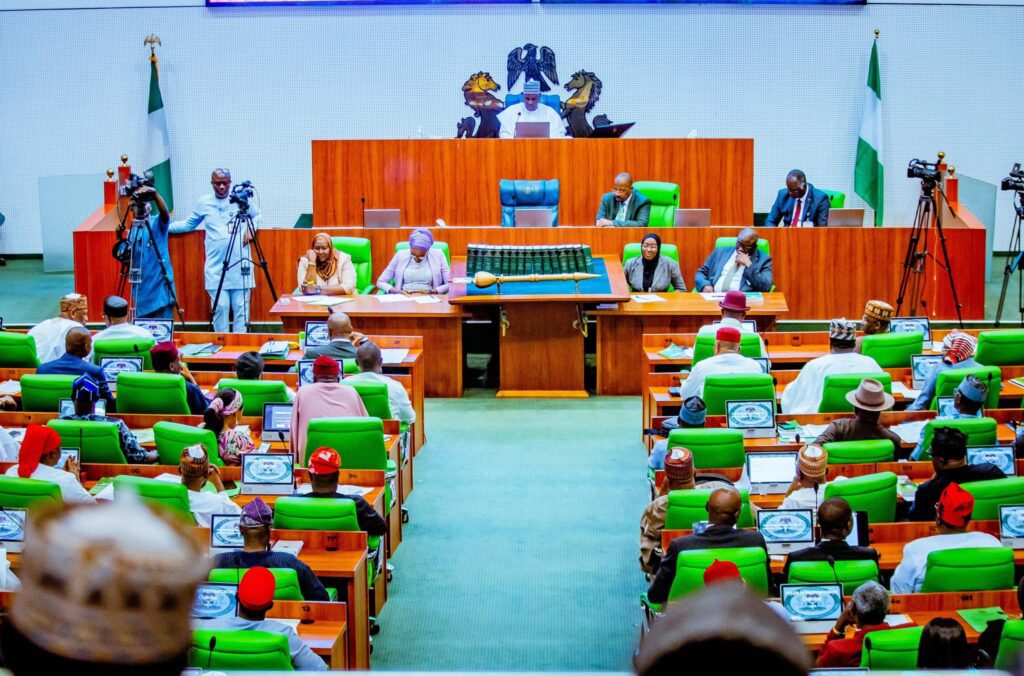The Joint Committee of the House of Representatives investigating arbitrary rise of cement price in the country has asked major producers in the industry to tender documents on cost production to justify the price of cement in the market.
The committee resolved to visit production plants of the companies after going though their books to ascertain the cost of production with a view to determine a fair price of cement for all Nigerians.
The Chairman of the joint committee, Rep. Jonathan Gaza (APC-Nasarawa) made the demand on Friday at a public hearing while quizzing Dangote Cement Company and Lafarge Africa PLC in Abuja.
He said that the committee is interested in the cost of production from 2020 to date that justified the current price of cement which is over N10,000 in most parts of the country.
He said that the companies should give its average daily consumption of coal, gas, gypsum, limestone, clay, laterite and the average daily production of cement from 2020 to date.
Gaza said that the companies should provide details of all imported components for the production of cement and their prices from
2020 to date.
The lawmaker said that the companies should also provide details of local components for the production of cement and their prices in naira and dollars, if any, in the period under review.
He said that the companies should provide a summary of the monthly prices and quantity of cement produced from 2019 to date as well as their audited accounts of the company, bills of laden and duties paid to customs within the period under review.
Gaza also said that the companies should provide details of tax waivers and other incentives enjoyed plus gas and explosives contract details.
Rep. Dabo Ismail (APC-Bauchi state), a member of the committee, said that Dangote Cement Company had continued to make increasing profits in the country despite being able to source most of its raw materials locally.
He said that in 2022, the company declared a profit of N524 billion, N553 billion in 2023 and had so far made N166.4 billion in 2024.
The lawmaker said that there is no reason why the price of cement would keep rising in the market to the detriment of Nigerians while producers are smiling to he banks.
Earlier, the Group Managing Director (GMD) of Dangote Cement Company, Mr Arvind Pathack, had said that 95 per cent of production cost are either imported or linked to forex.
He explained that there had been,between 100 to 333 per cent increase in the price of major cement input materials like gas, AGO, gypsum, imported coal, spare parts, new trucks, tyres, petrol among others.
Pathack said that the company is made to pay in dollars, some of its contracts to access gas and explosives, saying that the provision made by the Central Bank of Nigeria (CBN) was not enough to meet demand, so they engage in international sales also source from the parallel market.
According to him, logistics issues such as deplorable state of key roads, create several issues including longer time to deliver, increase in truck maintenance and delivery cost.
The GMD explained that lack of sufficient forex to settle trade obligations had resulted to huge forex losses to a tune of N150 billion per annum, while paying 30 per cent interest rate on loans.
He said between May 2023 and June 2024, there has been over 220 per cent devaluation of the Naira among many other challenges like insecurity and public power supply.
Pathack said that the cost of building materials like reinforcement, granite and aluminum window had increased by 177 per cent to 283 per cent while cement had increase by 166 per cent between 2023 and 2024.
He said that cement was being sold at an average cost of 7,200, saying that any price over N10,000 was the handwork of retailers which the company had no control over.
According to him, when converted to dollars a bag of cement is sold at $7.8 dollars in Benin, $6.6 in Togo, $7.8 in Ghana, $4.4 in India while that of Nigeria is $4.43, making it one of the cheapest in Africa.
The committee admonished the companies to look into their policies and operations with a view to reduce the price of cement in the country.
In an interview with newsmen, the chairman of the committee expressed hope that the engagement would lead to a reduction in the price of cement.
He blamed the high price of the commodity on the inaction of Federal Competition Consumer Protection Commission (FCCPC).
Gaza said that as an agency responsible for the protection of consumers, they failed to protect Nigerians against middlemen who sold the commodity for as high as N14,000 after purchasing it for N6,000 at the factory.
“We are extremely hopeful that this engagement will lead to a reduction in the price of cement.
“FCCPC has slept on their functions so far, their inactivity and non-responsiveness to price is what has put Nigeria where we are today,” he said.

